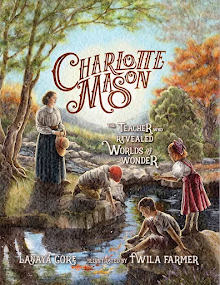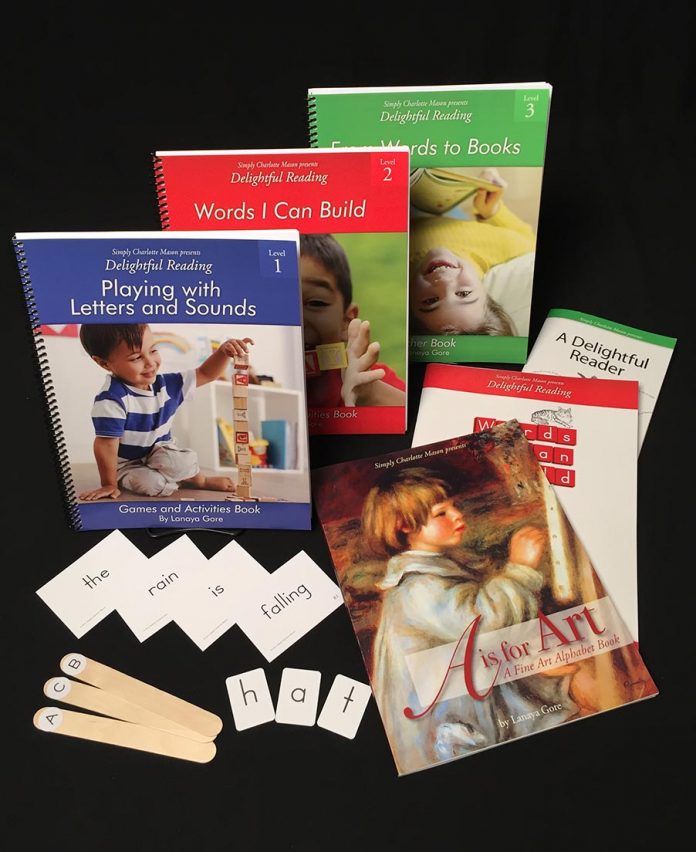We've made some leaps and bounds this year in the area of reading ability. It's been a struggle -- mostly internal for me; mostly external for the girl. (We had very little teasing about late reading {came from neighbor kids; not siblings}, but it was enough that I realized how much worse it would have been in a classroom setting where comparison is built into the system.) My hopeful thinking that reading ability is unique to each child's maturation has been (experientially, at least) vindicated, so I feel I can share our story:
More and more studies are being done on connections between the brain and reading abilities. The findings confirm that kids run the gamut on the age that their brains are ready for the different stages of reading. Kids become fluent readers once the pathways between both hemispheres develop. Physical activities such as playing in the mud, cutting with scissors, sweeping with a broom and playing ring-around-the-rosies are all helpful in maturing the brain. Reading to your child from a variety of styles (stories with pictures, stories without, poetry) helps them imagine a story and learn to rhyme. Once they show interest in letters, you can playfully teach them how to recognize and write. All these things prepare a child to read. Even so, children's brains are not the same and there is no settled age for the different stages of reading.
My four kids have all had unique approaches to reading readiness. The eldest became interested in reading at age 7. Dad bought her an American Girl series and she quickly read them all (though she tells me now that she skipped the words she didn't know, which were quite a few!). She was hooked on reading from then on. She's an active girl who always has a project going on; math is not her strongest ability.
Second child was not as quick to learn to read. He did reading lessons fine but wasn't excited or eager. At 13 he still doesn't choose to read for pleasure, but he handles the school readings assigned to him. He likes Lego, computer games and watching science/nature videos.
The youngest is 7. He also seems to be of a similar level as his brother. He is progressing fine through reading lessons, but he's not super excited by them. He prefers to read from a simple book rather than do a word-building lesson. He had a hard time paying attention to audiobooks last year. (I didn't expect him to; but I wanted him to listen to get some practice for later years. I just can't do all that reading aloud anymore!) This year he gives much better narrations from audiobooks, and he cried when Heidi came to an end. He is often lost in his imagination ~ thinking of stories or playing a character.
My dearest Phoebe, the third and truly middle child, is the one whose story encourages me at this moment. Because for a while there, I did not know what to do for her. We did brain exercises, Dad had to take over teaching the alphabet after I'd tried for several years, we dabbled in different reading programs, I would voice my concerns to others which usually ended with a new program recommended and me feeling like a failure. In my heart, I felt she would be just fine and would pick it up when she was ready; but I also felt so much pressure from the outside world to have my child on par with "standards."
Well, this is the year Phoebe has launched herself into the printed world. She started reading the Harry Potter series this fall and is on the 5th book right now. Hundreds of pages read in a week. On her own time. This is an amazing thing for me to witness and I. am. thrilled!
Two years ago she labored through a Magic Treehouse book over the summer when Dad offered an incentive. Last year she read books like "Green Eggs and Ham" for the summer reading program. And this year, at age 11, she's doing the Harry Potter series (4,224 pages!).
This has not come from special programs or instructions or even brain exercises ~ at least that's my opinion from my observations. This has come because she was finally physically ready.
There were several things I noted from The Struggle though:
- Don't push or nag or make reading lessons a horrible, tear-inducing drudgery. Surprise, surprise - that doesn't help anything.
- Do keep teaching reading. Progress is key, not arbitrary deadlines. Slow and steady. Back off if needed, but don't quit.
- Keep variety in your lessons. When she was a little older, we used Delightful Reading which I had written for Jonathan (there was only one kit at that time; now there are two for the younger years as well). We used several other programs in her younger years. We also just read from simple living books quite a bit.
- If a word is unknown in the course of the child reading aloud, just tell them what the word is instead of having them drag it out and get frustrated. I think it's important for them to enjoy the story and have some success in a timely finishing. If you're telling them every other word, you may want to try an even simpler book next time.
- Do anything verbal/reading related that interests them. Phoebe wanted to enter a story contest last summer and won third place with a cash prize. It was a victory for her. She also listened to copious Librivox recordings over the past years: Anne of Green Gables, The Little Princess, and the like. Her teachers in Sunday School made time for each child to read aloud from the Bible if they wanted to; Phoebe said that she was a little embarrassed to try, but she was determined to read for them.
And so we forge on with school. Figuring out a problem. Stepping back. Praying. Trying something new. Remaining calm. Encouraged when at last there is a break-through; but not detrimentally pushing the child to that break-through until they are ready. I knew you would get there, Phoebe. We just had to give it time.









No comments:
Post a Comment